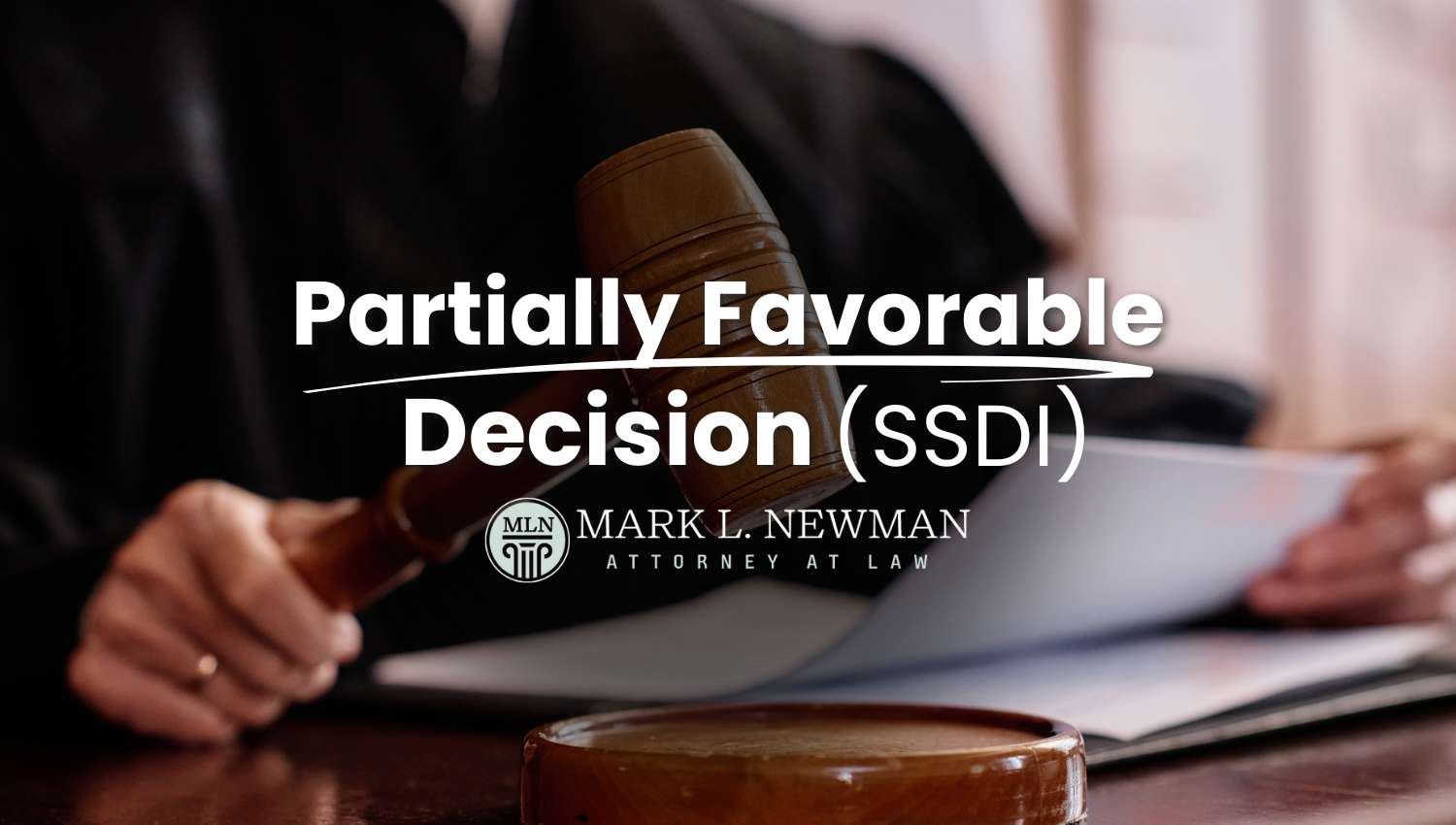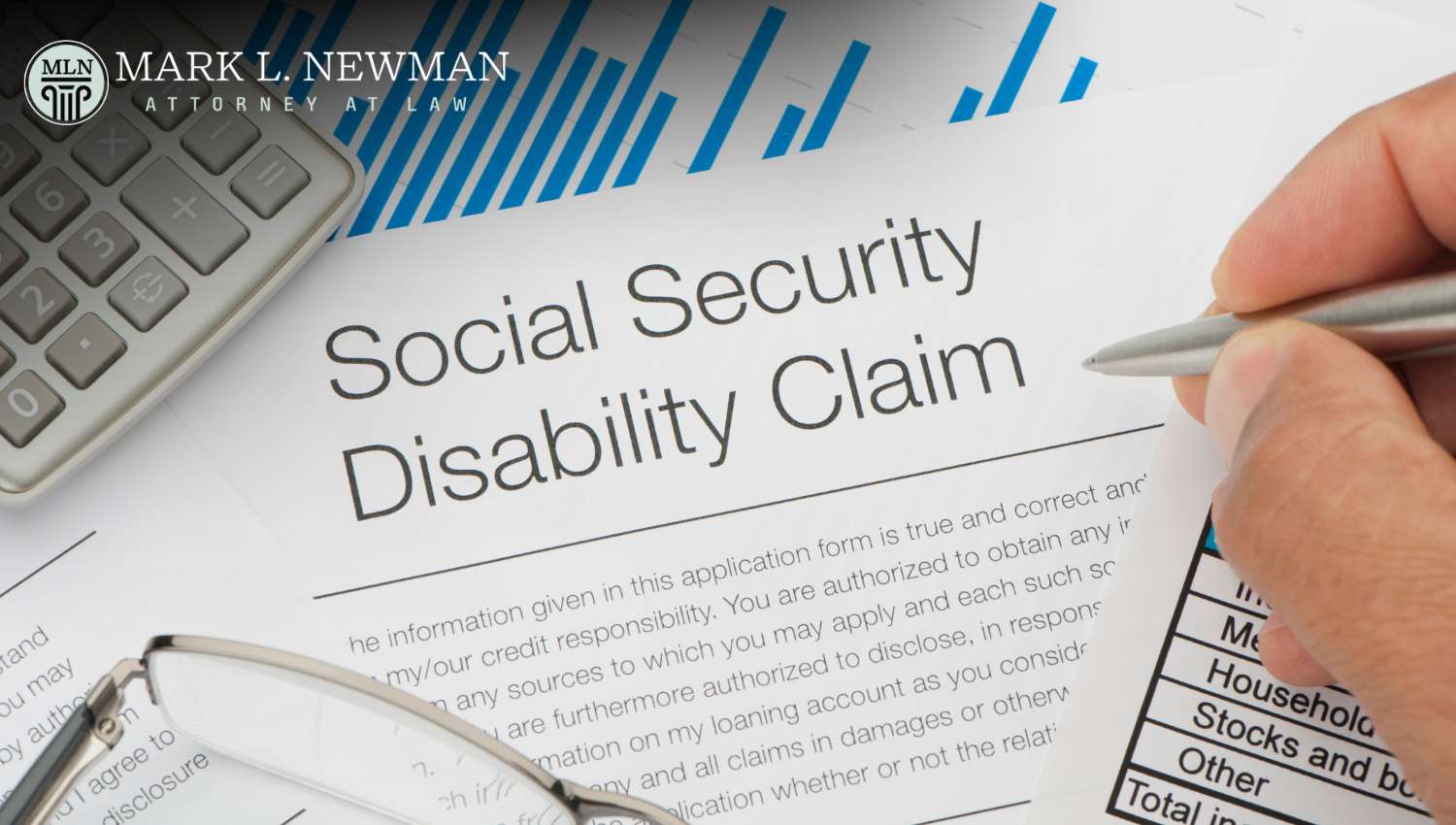
If you’ve received a partially favorable decision on your Social Security Disability Insurance (SSDI) claim, you may be wondering what it really means for your benefits and your future.
Mark L. Newman, a skilled Cincinnati, Ohio SSDI attorney, helps individuals understand their SSDI decisions and explore all available options to secure the full support they deserve.
In this blog, we’ll break down what a partially favorable decision (SSDI) entails and how an experienced disability attorney like Mark can help you take the next steps.
What Does Partially Favorable Mean in Social Security?
A partially favorable decision in an SSDI case means that the Social Security Administration has approved your claim for benefits, but not exactly as you requested.
Most commonly, it means they agree that you are disabled but have set a later “alleged onset date” than the one you originally claimed.
What is a Partially Favorable Disability Decision?
A claim may result in a partially favorable decision for several reasons. For example, if the Administrative Law Judge agrees that you’re disabled but believes your condition didn’t become disabling until after the date you alleged, they may assign a later onset date.
Another example is when you’re found disabled going forward but not entitled to retroactive benefits due to insufficient medical evidence for the earlier period.
In some cases, a partially favorable decision may also occur if you qualify for SSDI benefits but not Supplemental Security Income (SSI), or vice versa.

Partially vs. Fully Favorable SSDI Decision
Here are the key differences between a fully favorable, partially favorable, and unfavorable decision in SSDI claims:
- Fully Favorable Decision: The judge agrees with your claim entirely, including your alleged onset date of disability. You’ll receive the maximum possible back pay and monthly benefits based on your original application.
- Partially Favorable Decision: The judge approves your claim but modifies part of it, usually by assigning a later onset date than you claimed. This can reduce the amount of back pay and may delay when your benefits begin.
- Unfavorable Decision: The judge denies your claim altogether, finding that you do not meet the criteria for disability benefits. No benefits will be awarded unless you appeal and succeed in a later review.
Reasons for a Partially Favorable Decision
There are several potential reasons why an SSDI claim might result in a partially favorable determination, including:
- Amended Onset Date: The judge determines that your disability began later than the date you originally claimed, based on medical evidence or testimony.
- Insufficient Medical Evidence for the Entire Period: There may not be enough documentation to support your disability during the earlier portion of your established onset date.
- Improved Condition After Filing: If your condition improved or changed during the claim process, the judge may limit benefits to a specific time frame.
- Closed Period of Disability: The judge agrees you were disabled but only for a limited time and does not warrant ongoing disability benefits.
- Credibility Issues: The judge may find inconsistencies in your statements or testimony, which could affect the approval of the full claim.
- Non-Medical Eligibility Factors: You may meet the medical criteria but fail to meet certain non-medical requirements, such as insufficient work credits or income/assets that disqualify you from SSI benefits.
- Partial Agreement with Vocational Testimony: The vocational expert may determine that you’re unable to perform past work but still capable of doing other types of work, which can impact the judge’s final decision.

What Happens After a Partially Favorable Decision?
After a partially favorable decision, SSDI will still grant you benefits, but they may start from a different disability date than you originally claimed. This is because the Social Security Administration accepts that you’re eligible for disability insurance benefits, but the established onset date has been adjusted.
So, while you have been awarded disability, the change in onset date may reduce your back pay. If you disagree with this decision, you have the right to appeal by requesting a review from the Appeals Council.
Why You Need an Experienced Ohio SSDI Lawyer
An Ohio SSDI lawyer like Mark L. Newman understands how Disability Determination Services evaluates medical conditions and can guide you through the appeals process if you believe the decision is unfair. Mark can also help you receive ongoing benefits and advocate for the full amount you’re entitled to, including any past due benefits that you have been denied.
With the right legal support, you can protect your right to receive benefits without unnecessary delays or mistakes.

Call Cincinnati SSDI Attorney Mark L. Newman Today
If you’ve received a partially favorable disability determination, it’s important to understand how it affects your Social Security disability benefits and what steps you can take next. While you may have been awarded benefits, the decision may not fully reflect your needs or the severity of your condition.
That’s where an experienced Cincinnati social security disability attorney like Mark Newman comes in. He works hard to turn partial approvals into a fully favorable outcome by challenging the initial determination when appropriate.
Call Attorney Newman today at (513) 533-2009 or reach out online to discuss your case and ensure you receive the full benefits you deserve.




